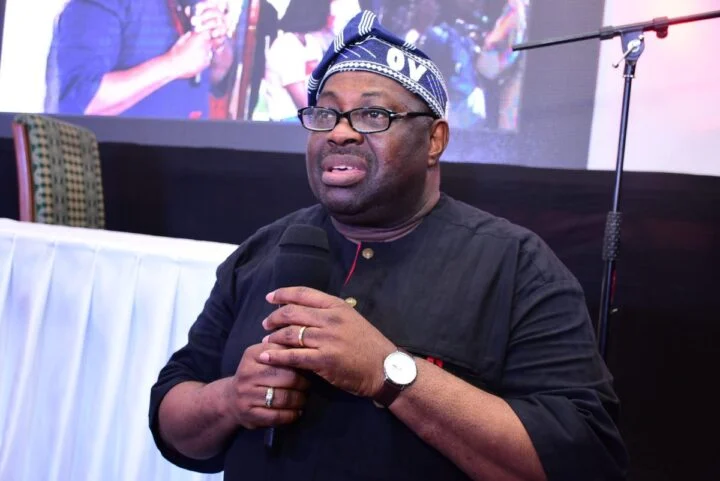SOCIAL MEDIA EXTRA

"MAY GOD HEAL HER": DELE MOMODU REACTS TO KEMI BADENOCH’S HARSH DESCRIPTION OF NIGERIAN SCHOOLING
Dele Momodu Prays for Kemi Badenoch After She Describes Nigerian Boarding School as a "Prison"
Media mogul Dele Momodu has responded to comments made by Kemi Badenoch, a British Conservative Party leader, who recently described her secondary school experience in Nigeria as being similar to life in prison.
In an interview, Badenoch recounted her time at Federal Government Girls College (FGGC), Sagamu, describing harsh conditions like using machetes to cut grass and washing toilets without running water. She likened the experience to "Lord of the Flies," noting that students were largely left to fend for themselves in overcrowded dormitories.
“I went to a secondary school... and that was like being in prison,” Badenoch said.
“We had to use a machete to cut grass. We cleaned toilets with no running water... It was tough and I was very far from home.”
Her comments sparked mixed reactions, especially among Nigerians who had similar experiences in federal boarding schools.
Dele Momodu took to social media to express his concern, stating:
“I truly and genuinely love Madam Kemi for her personal accomplishments but I often shudder… at her unfortunate denigration of Nigeria at every opportunity.
May God almighty deliver her from whatever might have traumatized her so much while growing up in Nigeria…”

While some online agreed with Badenoch’s assessment of the challenging conditions in many Nigerian public schools, others criticized her for painting the country in a negative light, especially in international media.
The incident has reignited conversations around the state of Nigeria’s education system, childhood trauma, and how public figures reflect on their origins when addressing a global audience.
Regardless of public opinion, Badenoch’s remarks and Momodu’s response show how deeply personal and complex the conversation around identity, upbringing, and representation can be—especially for Nigerians in the diaspora.
"This represents a significant development in our ongoing coverage of current events."— Editorial Board









